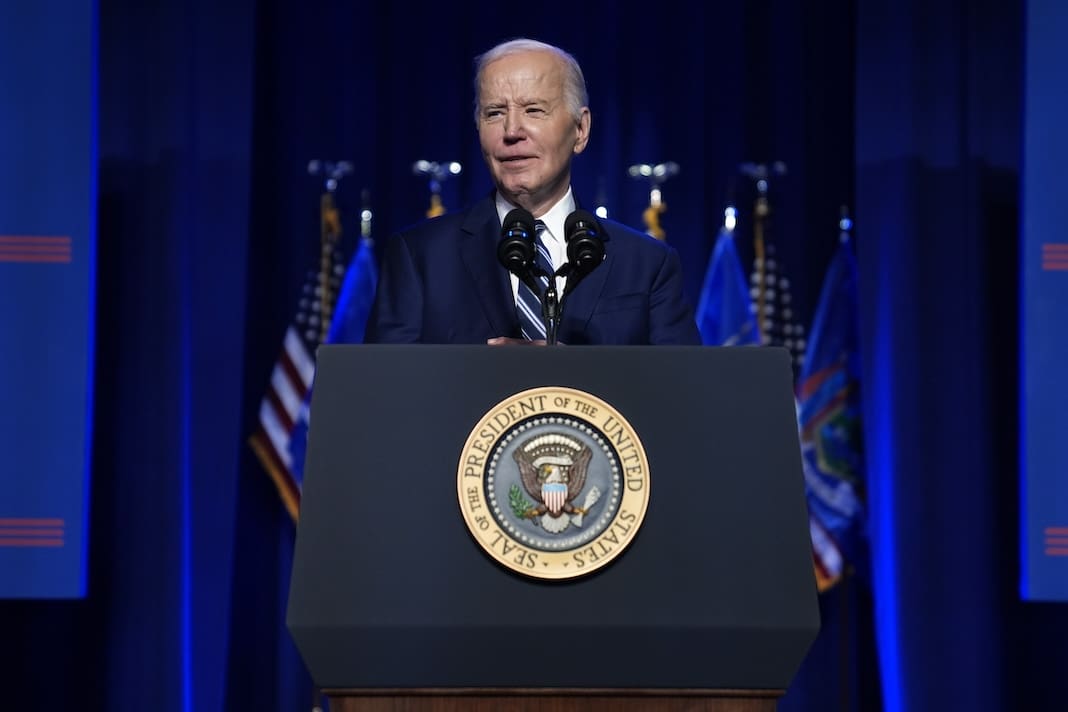White House warns that GOP bills would raise drug prices and cost consumers billions
The Inflation Reduction Act cut prescription costs for many Medicare beneficiaries.

The White House warned in a Dec. 14 release that legislation proposed by congressional Republicans that would either completely or partially repeal the Inflation Reduction Act could increase drug prices for many older Americans and families.
President Joe Biden signed the Inflation Reduction Act in 2022. The bill was unanimously opposed by Republicans in the House and the Senate.
“President Biden has taken historic action to reduce prescription drug costs for seniors and for working-age people who get health insurance through their jobs,” the White House said in this week’s release. “Meanwhile, Congressional Republicans are actively fighting to roll back the reforms the President signed into law and to keep Big Pharma’s taxes low.”
The Biden administration referred to bills that would completely repeal the law (H.R. 812 in the House) or repeal provisions of the law relating to prescription drug prices (S. 4953 in the Senate). The law currently requires pharmaceutical companies to pay a rebate to Medicare if drug prices increase faster than the rate of inflation and gives Medicare the right to negotiate prescription drug prices.
The White House said that if Republican repeal efforts are successful, by 2031 older Americans enrolled in Medicare would spend $5 billion more on prescription drugs without the rebates, citing an analysis of the law released by the nonpartisan Congressional Budget Office in February.
Using the same data, the administration said without the current law the deficit would be increased by $7 billion per year. The CBO analysis showed that older Americans would pay $7 billion per year more on prescriptions if Medicare’s power to negotiate drug prices is negated.
The House bill has been referred to the Committee on Transportation and Infrastructure’s Subcommittee on Highways and Transit, but even if it secures passage in the House, it is unlikely to pass in the Senate, where Democrats have a majority. The Senate bill has been referred to the Senate Finance Committee and is unlikely to come up for a vote.
Rep. Tom Tiffany (R-WI) is one of 24 co-sponsors of H.R. 812, titled the “Inflation Reduction Act of 2023.” The legislation was introduced by Rep. Andrew Ogles (R-TN) on Feb. 2.
Tiffany, along with the other Republican members of Wisconsin’s congressional delegation, voted against the original Inflation Reduction Act.
“The politicians still calling the Democrats’ tax-and-spending bonanza the ‘Inflation Reduction Act’ are the same ones who are directly responsible for the 40-year high inflation Americans are being slammed with,” Tiffany tweeted on Aug. 12, 2022, the day the bill was signed.
Tiffany wrote an op-ed the following day attacking the law in the Washington Examiner, accusing Democrats of “pouring more fuel onto the inflation fire.”
Consumers are already seeing prescription drug-related benefits from the Inflation Reduction Act.
The law put in place a cap of $35 on insulin costs for many Medicare beneficiaries. Since then, several pharmaceutical companies have announced similar price limits for all consumers, expanding the price cut beyond those on Medicare.
In August, the Department of Health and Human Services announced the first 10 drugs that Medicare had targeted for upcoming price negotiations. The drugs are used to treat heart failure, blood cancers, diabetes, kidney disease, and other ailments.
“For far too long, pharmaceutical companies have made record profits while American families were saddled with record prices and unable to afford life-saving prescription drugs,” HHS Secretary Xavier Becerra said in an Aug. 29 statement. “But thanks to the landmark Inflation Reduction Act, we are closer to reaching President Biden’s goal of increasing availability and lowering prescription drug costs for all Americans.”




